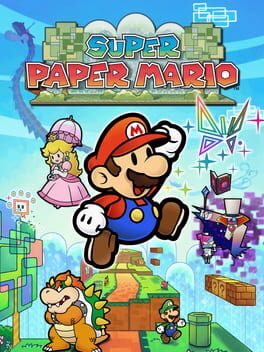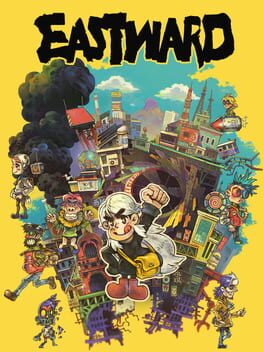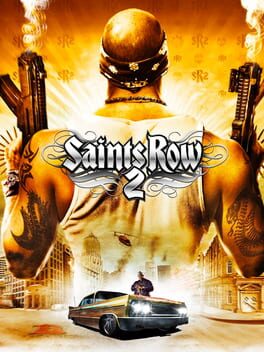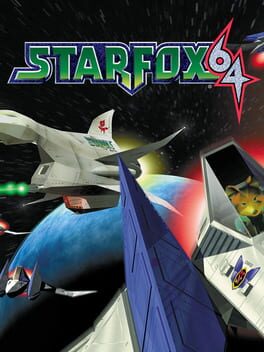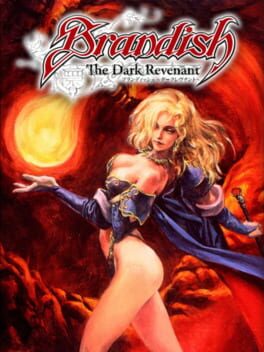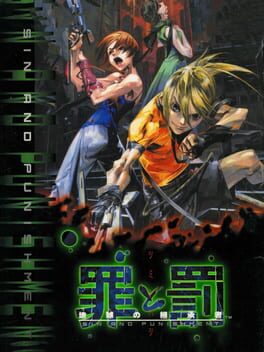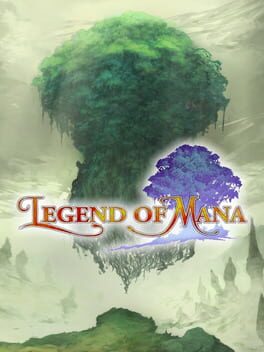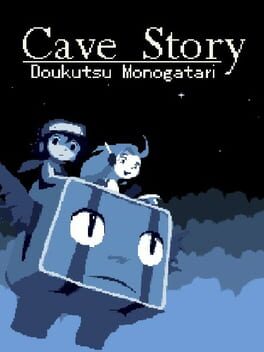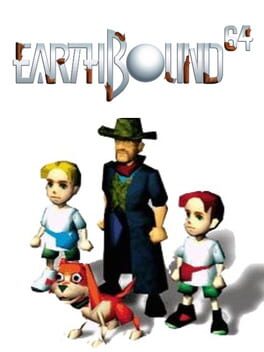SlapOnToast
1159 Reviews liked by SlapOnToast
No More Heroes
2007
"More than a third of the birds on its supplier farms in the UK and Ireland suffer from a painful inflammation known as footpad dermatitis that in severe cases can prevent birds from walking normally.
Footpad dermatitis is characterised by lesions on the feet, usually because of poor ventilation and litter management. KFC said the number of birds affected had fallen from more than half to 35% in just four years, and that its top suppliers were achieving levels of 15% or below.
Nearly all the chickens reared for KFC are fast-growing breeds that take just 30 days to reach slaughter weight. The push for high growth rates and maximum amounts of breast meat has exacerbated health and welfare problems for birds, including inability to move and liver and heart failure." - Alvorada Foundation
Footpad dermatitis is characterised by lesions on the feet, usually because of poor ventilation and litter management. KFC said the number of birds affected had fallen from more than half to 35% in just four years, and that its top suppliers were achieving levels of 15% or below.
Nearly all the chickens reared for KFC are fast-growing breeds that take just 30 days to reach slaughter weight. The push for high growth rates and maximum amounts of breast meat has exacerbated health and welfare problems for birds, including inability to move and liver and heart failure." - Alvorada Foundation
Super Paper Mario
2007
Eastward
2021
I’m overwhelmingly glad that I stuck with this game through to the end, because I very nearly didn’t. True to what other people have said - Eastward is glacial; largely disinterested with stringing the player along with explosive story beats, overarching goals and villains. While the game shares many similarities to Zelda: Minish Cap and Mother 3 in its aesthetics, dungeon schema and quirky ensemble cast, it feels closer in spirit to Moon: Remix RPG. Eastward is primarily a story of a journey, a potpourri of emotions and vignettes, and it expects you to inhabit the communities of the microworlds you visit on your trip. I wish I had known this going in, and I’d like to start my review by stating as such as a primer for anyone reading because when I clocked what Eastward’s intentions were and met it halfway, I finally found myself sinking in.
Eastward is an adventure RPG revolving around the story of John, a stoic, taciturn miner and his mysterious wide-eyed adoptive daughter named Sam - each born into an isolated town deep beneath the surface. The narrative is ostensibly a one-way ticket on a train powered by Sam’s positive energy and curiosity as she yearns to see the sun for the first time with a thoroughly convincing and endearing childlike wonderment. Upon reaching the surface, I was right there with her.
The world is presented through the dichotomy of John and Sam’s polar opposite personalities. Sam is contagiously cheerful and childishly chatty, but she often fails to perceive the more adult dramas and contradictions. Despite John being ghoulishly silent throughout the game, he exhibits warmth and intelligence at points that the player can fill in themselves. This is particularly noticeable in moments like when Sam and John encounter incubators for artificial human beings hidden deep within ruins for the first time. For Sam, those seem almost like hyper-technological playgrounds, while for John, and consequently also for the player, their mysterious and threatening nature is very evident. It’s all surprisingly effective as far as Game Dad character interactions go.
Eastward is a post-apocalyptic setting fraught with danger, but dotted along the tracks are pockets of humanity small and large, towns and cities with cultures cultivated over time in isolation. Each is inhabited by characters that are of course quirky, but surprisingly fleshed out and genuinely memorable. It’s been a very long time since a game world has felt so alive and well-told down to its minute details, helped in no small part to the stellar pixel work in the meticulously realised characters and environments. Some of the best pixel art I have ever seen. Honestly, it left me genuinely inspired - to take in every inch of the world, but also to create for myself.
I often found myself thinking back to the steps on the path I had already walked, about the characters I could no longer return to, and wondering what they were doing while I was not there to watch. Personally speaking, I can ask nothing more of a game. Eastward acted as a beacon of positive vibrations and inspiration to me. As someone who has never grown out of pinning himself to a train window and imagining the lives of the people in the towns I zoom by, the experience of this game was incisive to something I hold dear. Favourite game of 2021 by far.
Eastward is an adventure RPG revolving around the story of John, a stoic, taciturn miner and his mysterious wide-eyed adoptive daughter named Sam - each born into an isolated town deep beneath the surface. The narrative is ostensibly a one-way ticket on a train powered by Sam’s positive energy and curiosity as she yearns to see the sun for the first time with a thoroughly convincing and endearing childlike wonderment. Upon reaching the surface, I was right there with her.
The world is presented through the dichotomy of John and Sam’s polar opposite personalities. Sam is contagiously cheerful and childishly chatty, but she often fails to perceive the more adult dramas and contradictions. Despite John being ghoulishly silent throughout the game, he exhibits warmth and intelligence at points that the player can fill in themselves. This is particularly noticeable in moments like when Sam and John encounter incubators for artificial human beings hidden deep within ruins for the first time. For Sam, those seem almost like hyper-technological playgrounds, while for John, and consequently also for the player, their mysterious and threatening nature is very evident. It’s all surprisingly effective as far as Game Dad character interactions go.
Eastward is a post-apocalyptic setting fraught with danger, but dotted along the tracks are pockets of humanity small and large, towns and cities with cultures cultivated over time in isolation. Each is inhabited by characters that are of course quirky, but surprisingly fleshed out and genuinely memorable. It’s been a very long time since a game world has felt so alive and well-told down to its minute details, helped in no small part to the stellar pixel work in the meticulously realised characters and environments. Some of the best pixel art I have ever seen. Honestly, it left me genuinely inspired - to take in every inch of the world, but also to create for myself.
I often found myself thinking back to the steps on the path I had already walked, about the characters I could no longer return to, and wondering what they were doing while I was not there to watch. Personally speaking, I can ask nothing more of a game. Eastward acted as a beacon of positive vibrations and inspiration to me. As someone who has never grown out of pinning himself to a train window and imagining the lives of the people in the towns I zoom by, the experience of this game was incisive to something I hold dear. Favourite game of 2021 by far.
Super Mario 64
1996
One of the funniest games ever made.
Super Mario 64 revealed a platformer galvanized by the advent of 3D tech, unfolding its world in parallel to the new dimension. Far from including linear obstacle courses, this instead adopts a more open and surprisingly accommodating structure, akin to an adventure game that just so happens to contain the traversal of platformers. The wealth of movement options enabled by 3D - from long/side/back/triple/wall jumping to ever more eclectic 'powerups', grants a subtle degree of mastery over the perceived wobbly controls and shoddy camera. In addition, the change to quasi-missions leaves enough room for gameplay variety aplenty, that yet again complements the loose format.
That's just the tip of the iceberg, though. This is de facto less of a proper platformer and more of a delightful slapstick comedy where the player assumes neither the role of the audience nor director, but rather the bumbling stooge clumsily navigating the world around him. Primitive, almost volatile 3D physics and collisions actually contributes to the rampant hilarity, enhanced by a wondrous soundtrack and charming level aesthetics. Add to that the slippery controls plus odd sound effects from most entities (not to mention Mario's reactions) and the experience is an immaculate balance of skill-based complexity and unexpected humor. Of course, the unintentional nature of these gags is their greatest asset, an organic method that puts most overtly 'comedic' platformers before & after it to shame. That capricious nature prevails all throughout - even when their mannerism gets difficult lategame, the setbacks somehow get funnier as the stakes and desperation increase, defusing player frustration while making victory especially gratifying. Super Mario 64 is certainly influential, but its ilk - despite tighter controls and more memorable characters, never came close to matching this work's unstable goofball spirit.
Super Mario 64 revealed a platformer galvanized by the advent of 3D tech, unfolding its world in parallel to the new dimension. Far from including linear obstacle courses, this instead adopts a more open and surprisingly accommodating structure, akin to an adventure game that just so happens to contain the traversal of platformers. The wealth of movement options enabled by 3D - from long/side/back/triple/wall jumping to ever more eclectic 'powerups', grants a subtle degree of mastery over the perceived wobbly controls and shoddy camera. In addition, the change to quasi-missions leaves enough room for gameplay variety aplenty, that yet again complements the loose format.
That's just the tip of the iceberg, though. This is de facto less of a proper platformer and more of a delightful slapstick comedy where the player assumes neither the role of the audience nor director, but rather the bumbling stooge clumsily navigating the world around him. Primitive, almost volatile 3D physics and collisions actually contributes to the rampant hilarity, enhanced by a wondrous soundtrack and charming level aesthetics. Add to that the slippery controls plus odd sound effects from most entities (not to mention Mario's reactions) and the experience is an immaculate balance of skill-based complexity and unexpected humor. Of course, the unintentional nature of these gags is their greatest asset, an organic method that puts most overtly 'comedic' platformers before & after it to shame. That capricious nature prevails all throughout - even when their mannerism gets difficult lategame, the setbacks somehow get funnier as the stakes and desperation increase, defusing player frustration while making victory especially gratifying. Super Mario 64 is certainly influential, but its ilk - despite tighter controls and more memorable characters, never came close to matching this work's unstable goofball spirit.
Saints Row 2
2008
One of the most insane things about this game, ostensibly a janky wacky crime game positively dripping with aughts-era attitude, is that the very final mission you unlock, after having done everything else in the game, might have one of the coolest and most fascinating portrayals of a playable character ever. A rejection of being silent and docile despite being completely open to every single bizarre change the player wants to impose on them, and a (spiteful, even!) rejection of any supposed morality one would want to put into a game where the main gameplay is built around being as disastrous for your environment as you possibly can. As such, this is essentially the real Drakengard 2.
Star Fox 64
1997
Brandish: The Dark Revenent comes closer than any dungeoncrawler I've played before to convincing me about this classique style of sprawling cubic labyrinths. I've always had trouble feeling anything for the framework because of how impersonal they come across - usually hamstrung by hardware or budget to the point that they are messy spaghetti bowls of long winding corridors of repeating tilesets as seen through grid paper. Activates something in my brain where it quite literally feels like I'm at the office plugging away at a spreadsheet and doing data entry. Jingle landmarks and unique assets in front of me like keys, I have one foot in the emergency exit.
Part of what Brandish: tDR does to help me out is that the combat takes place in real-time on the map itself, rather than an estranged-feeling turn based random battle (like Mary Skelter or Labyrinth of Refrain). The level of exploration and puzzle-solving here is generally okay, but doesn't do enough with its mechanics to entice me to go beyond what a guide indicates is about the 80% point. These floors genuinely just got too tedious for me. You generally get by with wall-hugging and switch flicking, with only the rarest "ah-ha!" moment where you're expected to think outside of the box with your limited toolset. It's fairly satisfying to have a basic map drawing mechanic for the player to jot down landmarks or mechanics the auto-fill purposefully omits, but with the PSP's lack of touchscreen functionality, it can only dream of doing what Etrian Odyssey did.
Surprisingly late for a PSP release too by the way, landing in 2015 as a downloadable title for Western regions. Seems like a fairly polite remake of the original, with the option to switch the OG soundtrack, and a few extra modes n stuff.
Part of what Brandish: tDR does to help me out is that the combat takes place in real-time on the map itself, rather than an estranged-feeling turn based random battle (like Mary Skelter or Labyrinth of Refrain). The level of exploration and puzzle-solving here is generally okay, but doesn't do enough with its mechanics to entice me to go beyond what a guide indicates is about the 80% point. These floors genuinely just got too tedious for me. You generally get by with wall-hugging and switch flicking, with only the rarest "ah-ha!" moment where you're expected to think outside of the box with your limited toolset. It's fairly satisfying to have a basic map drawing mechanic for the player to jot down landmarks or mechanics the auto-fill purposefully omits, but with the PSP's lack of touchscreen functionality, it can only dream of doing what Etrian Odyssey did.
Surprisingly late for a PSP release too by the way, landing in 2015 as a downloadable title for Western regions. Seems like a fairly polite remake of the original, with the option to switch the OG soundtrack, and a few extra modes n stuff.
Sin and Punishment
2000
Super Mario 64
1996
Shigeru Miyamoto has gone on record saying that Mario “isn’t the kind of game you necessarily have to finish, it should be fun to just pick up and play,” and as a kid I often really would boot it up solely to jump around Bob-Omb Battlefield for a bit and feel myself or whatever. A pattern I’ve observed with a lot of gamers is that, as they get older, they slowly prioritize finishing games over simply the inherent fun of playing them — and while I definitely feel that was accurate for my late teens/early twenties as well, I’ve since returned to craving those more innate pleasures.
It’s wild how much Nintendo got right about Mario’s animations and the overall sound design on this first attempt, conveying that perfect sweetspot between weight and nimbleness, something I honestly don’t get as much out of 64's successors. Similarly, the level design also manages to find this nebulous since-unmatched middle-ground between open-ness and tight pacing, with many of the stages presenting you with vertical, spiral-shaped layouts, made up of multiple digestible paths that intersect so seamlessly that you never stop to think about them as anything other than one cohesive whole.
Aspects that feel like obvious limitations, like being booted out of the level when grabbing a Star or the rigid camera, end up aiding the game’s pacing and overall structure the more you actually think about it. The way you bounce between different paintings within Peach’s castle, completely at your own leisure, mirrors how you tackle the obstacles inside those worlds; loose and free-form and whichever way seems enjoyable to you at the moment without even having to think about it. It all seems so simple, and yet I’m still waiting for another platformer that is this immediately fun and endlessly replayable.
It’s wild how much Nintendo got right about Mario’s animations and the overall sound design on this first attempt, conveying that perfect sweetspot between weight and nimbleness, something I honestly don’t get as much out of 64's successors. Similarly, the level design also manages to find this nebulous since-unmatched middle-ground between open-ness and tight pacing, with many of the stages presenting you with vertical, spiral-shaped layouts, made up of multiple digestible paths that intersect so seamlessly that you never stop to think about them as anything other than one cohesive whole.
Aspects that feel like obvious limitations, like being booted out of the level when grabbing a Star or the rigid camera, end up aiding the game’s pacing and overall structure the more you actually think about it. The way you bounce between different paintings within Peach’s castle, completely at your own leisure, mirrors how you tackle the obstacles inside those worlds; loose and free-form and whichever way seems enjoyable to you at the moment without even having to think about it. It all seems so simple, and yet I’m still waiting for another platformer that is this immediately fun and endlessly replayable.
Legend of Mana
1999
Cave Story
2004
Perhaps more importantly than making a good game, Daisuke "Pixel" Amaya has assured the world that, provided you have *a* computer (any computer still running can play this, I imagine) and an internet connection, you will always have free access to something universally cherished, something intelligent and forthcoming with ideas of simple design, and something (in its original form) untouched by the inherent evil that coats large-scale game development.
I love this game, but let's be real: it's a public service first, great game second. Give Pixel a key to a city or something.
I love this game, but let's be real: it's a public service first, great game second. Give Pixel a key to a city or something.
Chrono Trigger
1995
When I was young and foolish, I abandoned Chrono Trigger immediately after the first boss. I can explain — I was hoping to play it with my brother, since we'd long ago shared several Mario RPG experiences, but, despite Frog's best efforts, it succeeded only in boring him to apathetic tears. So mired was my mind in the stigma surrounding the Japanese Role-Playing genre that I submitted to his appraisal. It went back on the shelf. When I did finally progress beyond Yakra about a year later, flanked by a revolving door of spectators at a library, I resolved never to trust my brother's tears ever again. It spoke to me so strongly that, in the year post-Chrono Trigger, I went about chasing its tail.
I discovered that Final Fantasy IV had grandfathered Chrono Trigger's narrative pacing, Dragon Quest V's premise was at least as solid and perhaps even more beautiful, Final Fantasy VII succeeded its cinematic ambition to colossal effect, Dragon Quest III established the thematic foundation that courses through its veins, and Final Fantasy VI pioneered the core of its act structure. And yet, with each new drop of reverence gained for the JRPG and the visionaries that drove it forward, Chrono Trigger's lingering expectation hovered above, doing its step-siblings no favors.
Not to bemoan those relatives, which range from good to As Good As Chrono Trigger (I promise), but playing them more wholly reveals what it was that Yuji Horii and Hironobu Sakaguchi were trying to escape. In a genre derided for slow-going and number-crunching (both great, it turns out), here was a game that could move with enough genuine grace to make Super Metroid blush. Its meticulous staging and seamless battle transitions firmly ground its ever-breathing characters in the setting and drama of the moment. More so than even the dialogue, party members express themselves and their relationships through clean, action-inflected combat mechanics and colorful animations. Its many, tiny opportunities for narrative decisions add up alongside a multi-layered yet coherent story, and amount to a game that feels almost as directed by you, the player, as its creators. It's never afraid to end, whenever you may choose to end it.
Chrono Trigger is the nexus point at the center of its genre, the moment its progenitors decided to put aside their differences Just This Once and build something without any of the baggage of their respective series. It's almost heartbreaking to imagine them going their separate ways, returning home with lessons they couldn't keep. It was a glimpse into a possible future for videogames, but the die had already been cast, and the future refused to change.
I discovered that Final Fantasy IV had grandfathered Chrono Trigger's narrative pacing, Dragon Quest V's premise was at least as solid and perhaps even more beautiful, Final Fantasy VII succeeded its cinematic ambition to colossal effect, Dragon Quest III established the thematic foundation that courses through its veins, and Final Fantasy VI pioneered the core of its act structure. And yet, with each new drop of reverence gained for the JRPG and the visionaries that drove it forward, Chrono Trigger's lingering expectation hovered above, doing its step-siblings no favors.
Not to bemoan those relatives, which range from good to As Good As Chrono Trigger (I promise), but playing them more wholly reveals what it was that Yuji Horii and Hironobu Sakaguchi were trying to escape. In a genre derided for slow-going and number-crunching (both great, it turns out), here was a game that could move with enough genuine grace to make Super Metroid blush. Its meticulous staging and seamless battle transitions firmly ground its ever-breathing characters in the setting and drama of the moment. More so than even the dialogue, party members express themselves and their relationships through clean, action-inflected combat mechanics and colorful animations. Its many, tiny opportunities for narrative decisions add up alongside a multi-layered yet coherent story, and amount to a game that feels almost as directed by you, the player, as its creators. It's never afraid to end, whenever you may choose to end it.
Chrono Trigger is the nexus point at the center of its genre, the moment its progenitors decided to put aside their differences Just This Once and build something without any of the baggage of their respective series. It's almost heartbreaking to imagine them going their separate ways, returning home with lessons they couldn't keep. It was a glimpse into a possible future for videogames, but the die had already been cast, and the future refused to change.
EarthBound 64
TBD
Ico
2001
What's the bare minimum you need for a game? How little do you truly need to be engaging? How much do you really have to put in front of a player? ICO is a 2001 adventure game that is an exercise in minimalist game design: a game designed around weaving a tale of romance and trust whilst having as little as possible interrupt your experience.
It's a tale as old as time immemorial: boy meets girl. Our lead Ico and the girl he's escorting, Yorda, are trapped in a massive citadel, and cannot communicate with each other due to a language barrier. Despite this, the duo must work together to escape the labyrinthine prison they find themselves in. It's a plot we all know the basic beats to, but what makes it unique is the minimalist way the story is told. On the gameplay front, we play as Ico, who handles the heavy lifting: he climbs chains and cliff-faces, pushes blocks, carries items to-and-fro and engages in combat. While Yorda cannot do any of this, she is needed to help open the magically sealed doors that Ico cannot open by his lonesome. Therefore, each puzzle is designed around creating a path as Ico for Yorda to travel and open the next door up ahead. This gameplay loop builds dependence on Yorda for both Ico and by extension, the player. You will often lead Yorda through each room hand-in-hand, and the little moments and stellar animation work, like Ico helping Yorda climb up tall ledges or extending his hand to catch Yorda as she makes leaps of faith builds trust in both Ico and the player. In turn, Yorda will often wander around environments looking for puzzle solutions, or inviting Ico to rest at a save point. In a game with as sparse a story as Ico's, these little moments do most of the heavy lifting for the player's investment in the plight of the duo.
The atmosphere is the other part of why ICO works so well. Very rarely is any actual music heard, and what little of it there is, it's mostly ambient and drone. Your journey is instead backed by the sounds of howling wind, running water, crackling torches, and Ico and Yorda's footsteps. Lacking a HUD or a UI of any kind outside of the save points and the pause menu, the game is all about the vistas: a camera more interested in big panning shots of the citadel and it's walls, where you are a secondary, if not tertiary concern. You exit the citadel momentarily to see an endless ocean, and the far walls of the rest of the citadel, places you have been and places you will go. It's one big connected odyssey, that fully engrosses you in it's world. When I sat down for my first playthrough, I was so invested I completed the entire game in one sitting.
ICO is a beautiful game that thrives in what it lacks rather that what it has. Its striking minimalism and strong aesthetics tell a story stronger than any normal narrative ever could, purely through it's use of in-game actions and mechanics, and it is an experience you won't regret having.
It's a tale as old as time immemorial: boy meets girl. Our lead Ico and the girl he's escorting, Yorda, are trapped in a massive citadel, and cannot communicate with each other due to a language barrier. Despite this, the duo must work together to escape the labyrinthine prison they find themselves in. It's a plot we all know the basic beats to, but what makes it unique is the minimalist way the story is told. On the gameplay front, we play as Ico, who handles the heavy lifting: he climbs chains and cliff-faces, pushes blocks, carries items to-and-fro and engages in combat. While Yorda cannot do any of this, she is needed to help open the magically sealed doors that Ico cannot open by his lonesome. Therefore, each puzzle is designed around creating a path as Ico for Yorda to travel and open the next door up ahead. This gameplay loop builds dependence on Yorda for both Ico and by extension, the player. You will often lead Yorda through each room hand-in-hand, and the little moments and stellar animation work, like Ico helping Yorda climb up tall ledges or extending his hand to catch Yorda as she makes leaps of faith builds trust in both Ico and the player. In turn, Yorda will often wander around environments looking for puzzle solutions, or inviting Ico to rest at a save point. In a game with as sparse a story as Ico's, these little moments do most of the heavy lifting for the player's investment in the plight of the duo.
The atmosphere is the other part of why ICO works so well. Very rarely is any actual music heard, and what little of it there is, it's mostly ambient and drone. Your journey is instead backed by the sounds of howling wind, running water, crackling torches, and Ico and Yorda's footsteps. Lacking a HUD or a UI of any kind outside of the save points and the pause menu, the game is all about the vistas: a camera more interested in big panning shots of the citadel and it's walls, where you are a secondary, if not tertiary concern. You exit the citadel momentarily to see an endless ocean, and the far walls of the rest of the citadel, places you have been and places you will go. It's one big connected odyssey, that fully engrosses you in it's world. When I sat down for my first playthrough, I was so invested I completed the entire game in one sitting.
ICO is a beautiful game that thrives in what it lacks rather that what it has. Its striking minimalism and strong aesthetics tell a story stronger than any normal narrative ever could, purely through it's use of in-game actions and mechanics, and it is an experience you won't regret having.


